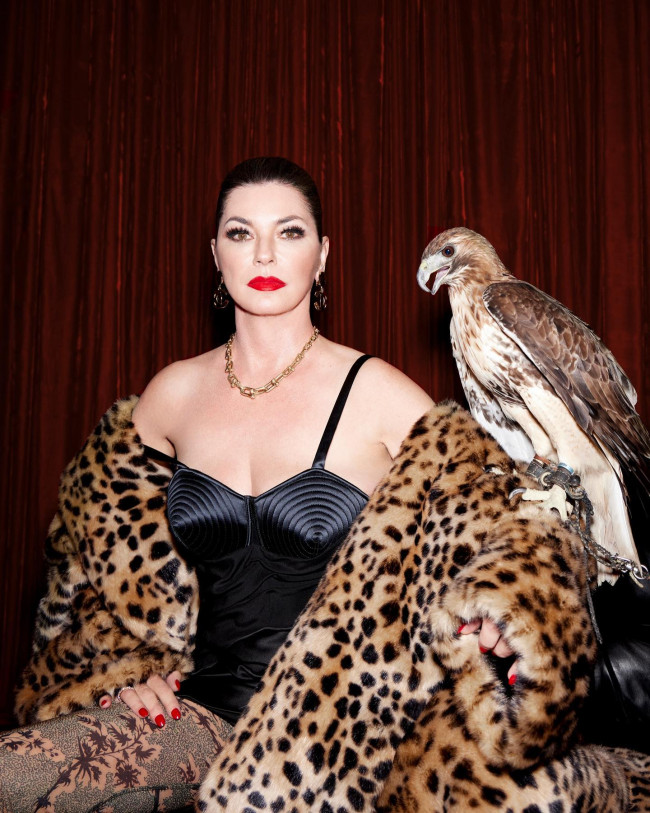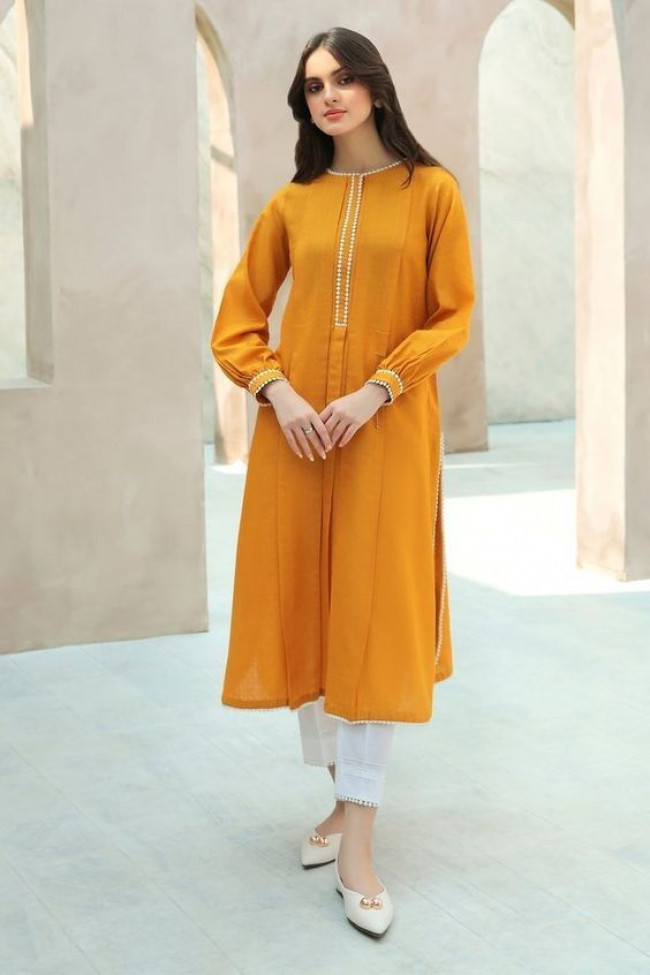In the ever-evolving landscape of luxury fashion, a significant transformation is underway. The essence of luxury is no longer confined to the realms of opulence and exclusivity. Instead, a more profound narrative is taking shape, one where luxury brands are actively engaging in societal issues, marking the advent of 'conscious luxury.' This shift is largely driven by modern consumers, whose preferences are increasingly influenced by ethical considerations and a desire for brands to contribute positively to the world.
Stephen Hahn, reflecting on this evolution, notes, "Luxury brands have to reflect the values that go beyond the extrinsic things of the brands, and that ties back to deeper, more intrinsic values. It's less about conspicuous consumption and more about capitalism with a conscience." This perspective underscores the growing expectation for luxury brands to embody values that resonate with a sense of self-worth rather than net-worth. It's a call to action for brands to align with causes that matter, transforming their legacy into one that not only dazzles but also makes a difference.
The concept of integrating philanthropy into the core identity of luxury brands is a testament to their potential for impact. By leveraging their influence and resources, these brands can champion causes that drive societal progress. This evolution is not merely a response to consumer demand but a reflection of a changing world, where the true measure of luxury extends beyond the material to encompass a commitment to making the world a better place.
Spotlight on Versace
Versace has long been at the forefront of blending luxury with activism. The brand's support for LGBTQ+ rights and cancer research initiatives exemplifies its commitment to societal issues. By commemorating the Stonewall Riots anniversary and contributing to cancer research foundations, Versace uses its platform to advocate for change, demonstrating the power of luxury brands to influence society positively.
These initiatives are not just about financial contributions; they're about mobilising the community and spreading hope. Versace's efforts showcase the brand's belief in using its influence for good, setting a precedent for how luxury brands can engage in meaningful social causes. It's a powerful reminder that the essence of luxury lies not only in the quality of its products, but also in the values it champions.
Versace's commitment serves as an inspiration within the luxury fashion industry, proving that brands can be both icons of style and beacons of social responsibility. This dual role enriches Versace's legacy and resonates with consumers who value brands that align with their ethical beliefs. As luxury fashion continues to evolve, Versace's contributions highlight the industry's potential to contribute to societal well-being.
Ralph Lauren's Pink Pony Campaign
Ralph Lauren's Pink Pony Campaign is a prime example of how luxury fashion can make a profound impact on society. Focused on cancer care, the campaign embodies Ralph Lauren's commitment to supporting treatment, education, and prevention efforts. This initiative reflects the brand's dedication to making a difference, integrating philanthropy into its identity.
The campaign's impact goes beyond financial aid; it fosters a sense of community and hope among those affected by cancer. Ralph Lauren's approach demonstrates the unique position of luxury brands to raise awareness and mobilise support on a large scale. It's a testament to the brand's long-term commitment to this cause, intertwining philanthropy with its brand identity.
As the Pink Pony Campaign continues to expand, it serves as a model for fashion philanthropy, showcasing the potential of luxury brands to lead with purpose. Ralph Lauren's efforts not only contribute to cancer care but also weave a narrative of compassion into the brand's fabric. It's a powerful example of how true luxury encompasses the ability to inspire and transform lives.
Narrowing the Lens
The adoption of sustainable practices by luxury brands is a critical step towards addressing environmental concerns. The fashion industry, known for its significant environmental footprint, is witnessing a shift as luxury brands embrace eco-friendly materials and strive to reduce their carbon footprint. This move towards sustainability is a response to the increasing awareness of environmental issues and the urgent need for action.
Dr. Martina Olbert emphasises the importance of this shift, stating, "We are now entering a new era of conscious consumerism where brands need to cater to both our higher and essential human needs that were long neglected due to focusing primarily on saturating dreams and brand aspirations." This perspective highlights the necessity for luxury brands to adopt practices that not only appeal to consumers' aesthetic desires but also address their ethical concerns. By prioritising sustainability, luxury brands can lead the industry towards a more responsible and environmentally conscious future.
The integration of sustainable practices into luxury fashion is not just a trend but a commitment to preserving our planet. It reflects a broader understanding of luxury, one that includes respect for the environment and a dedication to ethical practices. As consumers increasingly seek out brands that align with their values, the demand for sustainable luxury fashion will continue to grow, shaping the industry's future.

Driving Social Justice
Luxury brands are increasingly using their platforms to advocate for social justice, championing causes that promote diversity and inclusion. Through targeted campaigns and partnerships, these brands are taking a stand on issues that resonate with consumers and society at large. This commitment to social justice reflects a growing recognition of the responsibility that comes with influence, inspiring brands to use their voice for good.
By aligning with causes that champion equality, luxury brands are redefining their role in society. They're not just purveyors of fine goods but active participants in the global dialogue on social justice. This shift towards advocacy and action is a positive development, enriching the industry and society alike. As luxury brands continue to champion social justice, they not only enhance their reputations but also contribute to a more inclusive and equitable world.
As consumers increasingly seek brands that align with their values, the luxury fashion industry's engagement with social justice issues becomes even more critical. It's a powerful way for brands to connect with their audience on a deeper level, building loyalty and trust. This trend towards advocacy and action promises to enrich the industry and society alike, making luxury brands not only icons of style but also beacons of positive change.
The Consumer's Role
In the dynamic relationship between luxury brands and their consumers, loyalty, perception, and engagement play pivotal roles. Today's consumers are informed, discerning, and actively seeking brands that reflect their values. This shift has profound implications for luxury brands, which must navigate the delicate balance between maintaining their exclusive allure and engaging with consumers on issues that matter. It's a dance that requires authenticity, transparency, and a genuine commitment to social causes.
Consumers have the power to support philanthropic luxury brands by making informed choices about where to spend their money. This form of engagement goes beyond the superficial, fostering a deeper connection between brands and their customers. The ability to discern genuine initiatives from mere marketing ploys is crucial in this context. Brands that demonstrate their dedication to social causes, through transparent reporting and tangible results, stand to gain the most.
This dynamic underscores the importance of authenticity in the luxury market, where the value of a brand is increasingly measured by its contributions to society, not just its craftsmanship or exclusivity. As consumers continue to prioritise sustainability and social responsibility, retailers that offer an ethical edit will play a pivotal role in shaping the future of luxury fashion. It's a trend that promises to redefine luxury, making it synonymous with responsibility and care for the planet.
Addressing the Sceptics
Despite the positive strides made by luxury brands in philanthropy, scepticism remains. Critics often accuse brands of greenwashing, questioning the sincerity of their commitments to social and environmental causes. However, the path to overcoming these challenges lies in transparency, long-term commitment, and measurable impact. Brands that adhere to these principles can build trust and demonstrate their genuine dedication to making a difference.
The importance of accountability cannot be overstated. Luxury brands, with their significant resources and influence, have a responsibility to lead by example. This means not only initiating philanthropic projects but also following through, ensuring that their efforts yield real benefits for the causes they support. Only through such rigorous commitment can brands hope to dispel scepticism and prove their worth as agents of positive change.
The challenges faced by luxury brands in the realm of philanthropy are significant, but so are the opportunities. By embracing transparency and accountability, brands can not only enhance their reputations but also contribute to a more sustainable and equitable world. It's a journey that demands courage and conviction, but for those willing to undertake it, the rewards are immense. In the end, the measure of a luxury brand's success will not be just in the beauty of its products but in the depth of its impact on society.
Cosette's Ethical Edit
In the landscape of luxury fashion, Cosette is known for its commitment to supporting brands that align with its values, including those renowned for their designer handbags and purses, such as the iconic YSL handbags and the meticulously crafted Bottega Veneta bag. By curating a selection of luxury items from brands that engage in meaningful social causes, Cosette offers consumers a way to indulge in high-end fashion while supporting ethical practices. This approach not only reflects Cosette's dedication to promoting sustainable fashion but also caters to the growing demand for conscious consumerism among aficionados of luxury bags. It's a model that proves luxury and ethics can go hand in hand, offering a compelling alternative to traditional retail.
Cosette's partnerships with trusted suppliers ensure that the luxury items it offers are not only authentic but also sourced responsibly. This commitment to authenticity and quality resonates with consumers, who are increasingly concerned about the provenance of their purchases. By providing access to luxury goods at discounted prices, Cosette makes sustainable fashion more accessible, encouraging consumers to make more mindful choices. It's a strategy that benefits both the environment and the consumer, reducing the demand for new production and lessening the overall environmental footprint of the luxury goods industry.
The role of retailers like Cosette in promoting sustainable fashion is crucial. By curating brands with a conscience, they help raise awareness of the importance of ethical practices in the luxury market. This not only supports the brands that are making a positive impact but also encourages others to follow suit. As consumers continue to prioritise sustainability and social responsibility, retailers that offer an ethical edit will play a pivotal role in shaping the future of luxury fashion. It's a trend that promises to redefine luxury, making it synonymous with responsibility and care for the planet.
Looking Ahead
As we gaze into the future of philanthropy in luxury fashion, several trends emerge. The demand for increased transparency is likely to grow, with consumers seeking more detailed information about the impact of their purchases. This push for transparency will encourage brands to be more open about their philanthropic efforts, fostering a culture of accountability and trust. Additionally, consumer-driven philanthropy is set to rise, with brands offering more opportunities for consumers to directly contribute to causes they care about. This participatory approach will deepen the connection between brands and their customers, making philanthropy an integral part of the luxury experience.
The integration of technology is another area ripe for innovation. From blockchain to track the provenance of materials to platforms that allow consumers to see the direct impact of their donations, technology will play a crucial role in enhancing transparency and engagement. These advancements will make it easier for consumers to make informed choices, supporting brands that align with their values. As technology continues to evolve, its potential to revolutionise philanthropy in luxury fashion is immense, offering new ways to connect, contribute, and make a difference.
The future of philanthropy in luxury fashion is bright, with endless possibilities for growth and innovation. As brands continue to embrace their role as agents of positive change, the industry is set to become more sustainable, equitable, and impactful. This evolution is not just beneficial for society and the environment; it's also a powerful way to engage consumers, building loyalty and trust in an increasingly competitive market. As we move forward, the commitment of luxury brands to social causes will undoubtedly shape the industry's trajectory, making philanthropy an essential element of true luxury.
Making a Difference One Purchase at a Time
The journey of luxury fashion towards a more philanthropic and sustainable future is a testament to the industry's capacity for transformation. As we've explored the contributions of luxury brands to social causes, it's clear that this shift is not just a trend but a fundamental change in how luxury is defined. The integration of philanthropy into the core values of luxury brands reflects a broader societal movement towards conscious consumerism, where the impact of our choices matters just as much as their aesthetic appeal.
Supporting brands that prioritise social causes is more than a statement of personal style; it's a way to contribute to positive change in the world. Every purchase can be an act of philanthropy, a step towards a more sustainable and equitable future. As consumers, we have the power to drive this change, choosing to support brands that align with our values and contribute to the causes we care about. It's a responsibility and an opportunity to make a difference, one purchase at a time.
The importance of philanthropy in the luxury fashion industry cannot be overstated. It's a movement that enriches the industry, offering a deeper, more meaningful connection between brands and their consumers. As we look to the future, let's embrace this shift towards conscious luxury, supporting brands that not only offer exquisite craftsmanship but also contribute positively to the world. Together, we can redefine luxury, making it synonymous with compassion, sustainability, and social responsibility.















